:max_bytes(150000):strip_icc()/ResignationLetter_2063073_2022-8e52542baa96457bb64d3191e73f9034.jpg)
How To Structure A Notice Letter Printable Templates Free
Both "who to" and "whom to" can be used, depending on the rest of the sentence. Final Thoughts "To whom" is the only correct form, as it uses the object of the sentence with "whom." "To who" is a common misinterpretation of sentence structure rules, but it should not be used in your writing. "Whom" is the only correct.

Letter To A Judge To Whom It May Concern I Have Known To with How To Write A Letter To A Judge
Date that a letter is dictated or composed. INSIDE ADDRESS. Address of the person to whom the letter is being sent. SALUTATION. Greeting to the recipient. REFERENCE. Used to identify what or about whom the letter is concerning. BODY. Content of the letter.

Letter formats to whom it may concern locednext
Example use of the phrase. When using "To Whom It May Concern," capitalize every word in the phrase. Then, follow it with a colon and double-space before you begin typing the body of your text. I am writing this letter to bring to your attention how unsatisfied I am with your company's customer service.
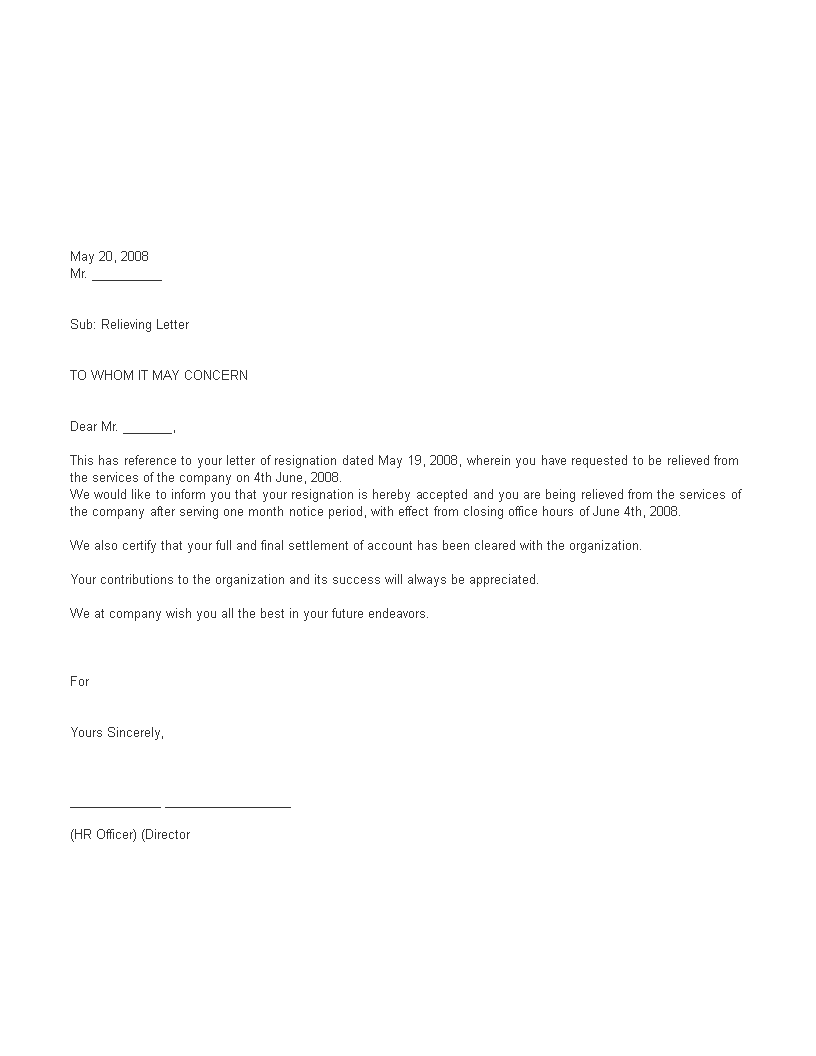
Business letter format to whom it may concern insightscaqwe
If you untangle the sentence and figure out (pardon the expression) who is doing what to whom, you'll be fine. Here's the deal: If you need a subject (someone doing the action or someone in the state of being described in the sentence), who is your pronoun. If you need an object (a receiver of the action), go with whom.. A good trick is to see if you can substitute the words he or she or they.
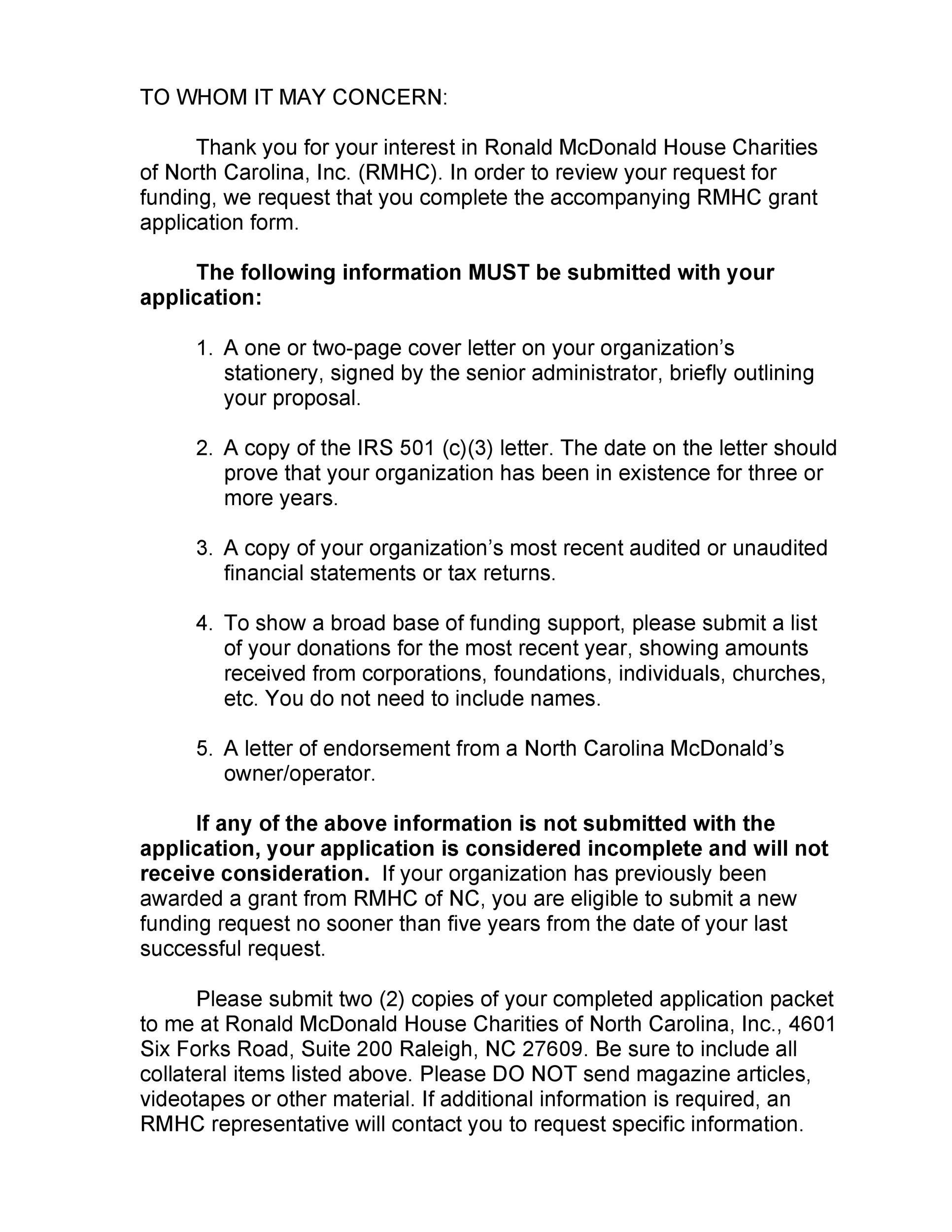
50 To Whom It May Concern Letter & Email Templates ᐅ TemplateLab
When to Use "Who" vs. "Whom". Whom is used to refer to the object of a verb or preposition. When in doubt, try this simple trick: If you can replace the word with he or she, use who. If you can replace it with him or her, use whom. Who should be used to refer to the subject of a sentence. Whom should be used to refer to the object of a.

To Whom It May Concern Letter Template Here are some example of when it is appropriate to use
Some months ago, while listening to Grammar Girl (one of my favorite podcasts), I picked up a neat little trick for remembering when to use who vs. whom. Both whom and him are pronouns that end with the letter m. So, all you do is remove the interrogative pronoun and replace it with he or him. If you would replace the interrogative pronoun.
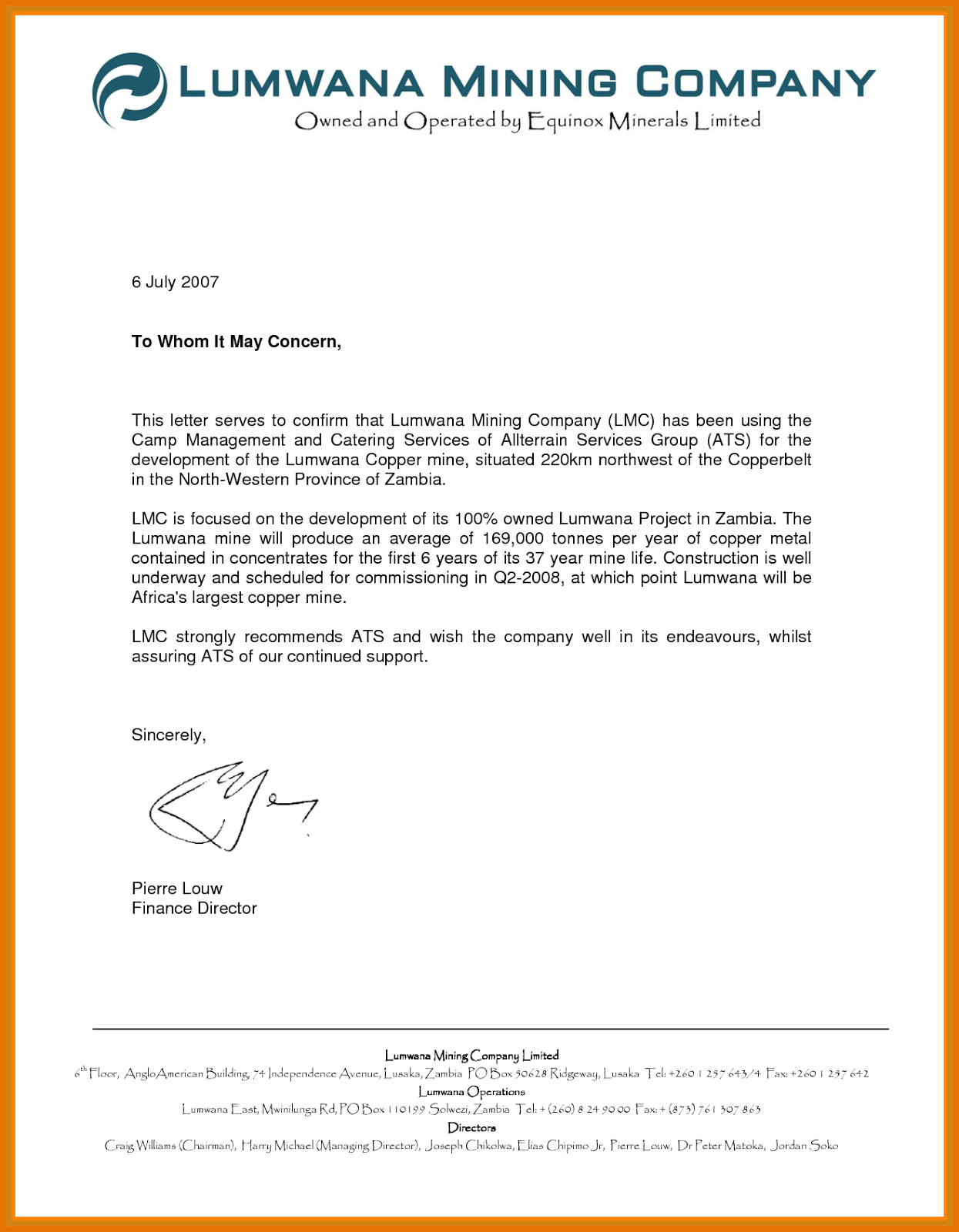
Letter example to whom it may concern molqyally
Increasingly, native speakers of English are adopting who as the preferred pronoun in informal conversation, even when whom, not who, is correct. This means that whom, when correctly used as an object pronoun, can sound more formal. In the two examples above, the formality can be toned down by omitting the pronoun in the first, and using the.

To Whom It May Concern The Quick and Simple Guide to Using This Phrase (With Examples)
4. Put the recipient's street address or P.O. box directly below their name. Write the number of the street address first, followed by the street name. Spell out the entire street name rather than abbreviating it if you're writing a business or formal letter. Additionally, capitalize the first letter of each word.

How to Send a Letter Learn How to Send Mail with USPS Shipping School
Dear (Name of recruiter) If you know the name of the recruiter who'll be reviewing your application, you can certainly address your cover letter to them. It might take a little effort to figure that out, but it does make your cover letter/application stand out. If you're working with a recruiter, you can ask them.

How To Write an Attention Letter/Line & When Should I Use It? PostGrid
How and When to Use Whom. Put simply, use whom—which is a pronoun—when it is the object of a sentence. If you can replace the word with "her," "him," or "them" for example, use "whom." You'll know when to use "whom" if the pronoun is used in the objective case, or action is being done to the pronoun. Take the sentence:

Writing a letter to whom it may concern hisascse
Once the Board has adopted a Board act, it shall send it to Parliament's competent committee. 4. Where the Statistical Office so requests, Member States shall send it any information, in particular concerning methodology, necessary for the implementation of this Regulation. The Court of Auditors shall send its report to the members of the Joint.
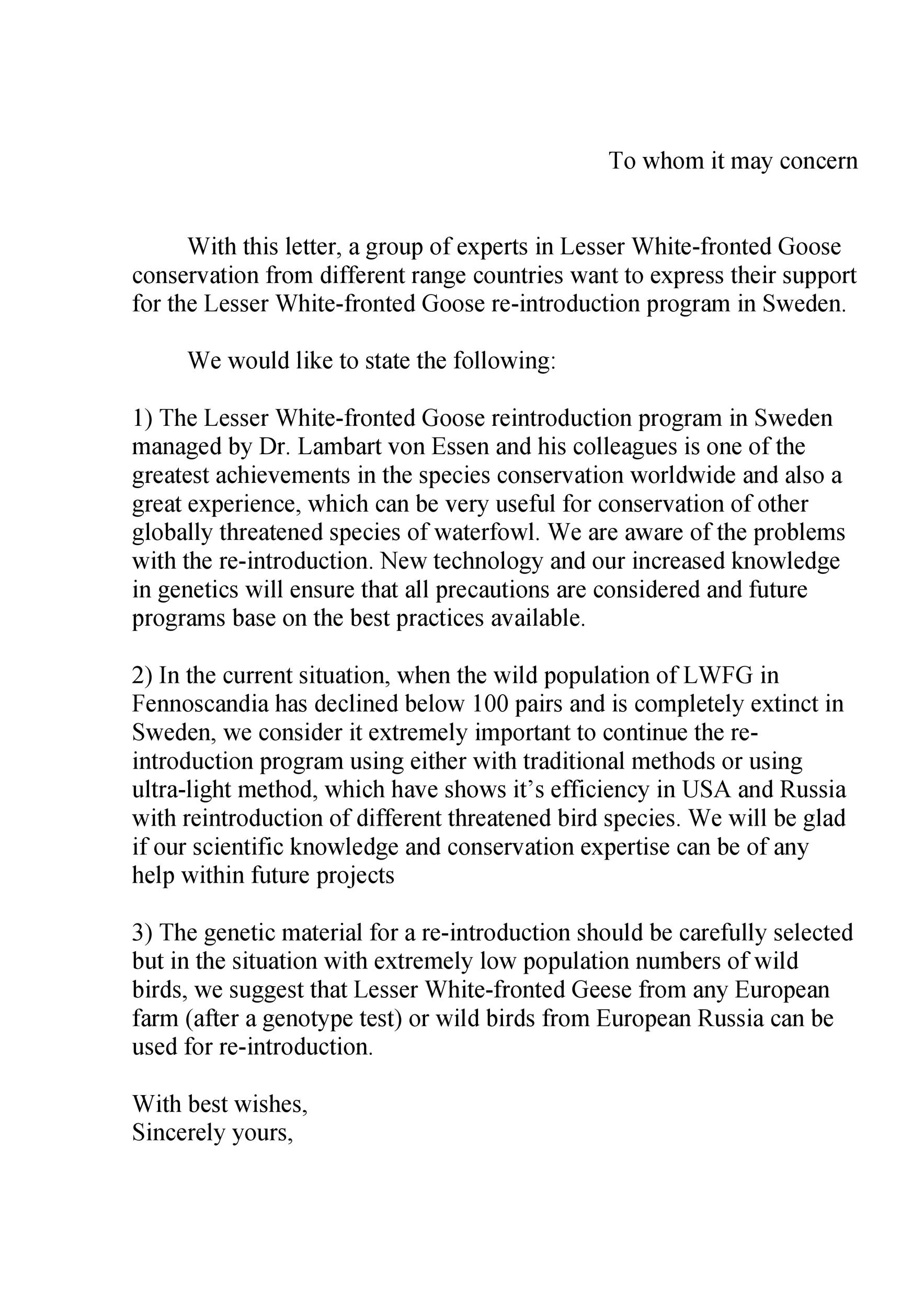
50 To Whom It May Concern Letter & Email Templates ᐅ TemplateLab
Closing: (Sincerely) Signature. Sender's Name. Designation. Encl: (if any) CC: Name of Other Recipient 1 (Concerned Person in Human Resource Department - With department name mentioned) This was one example of how CC can be used in a business letter.
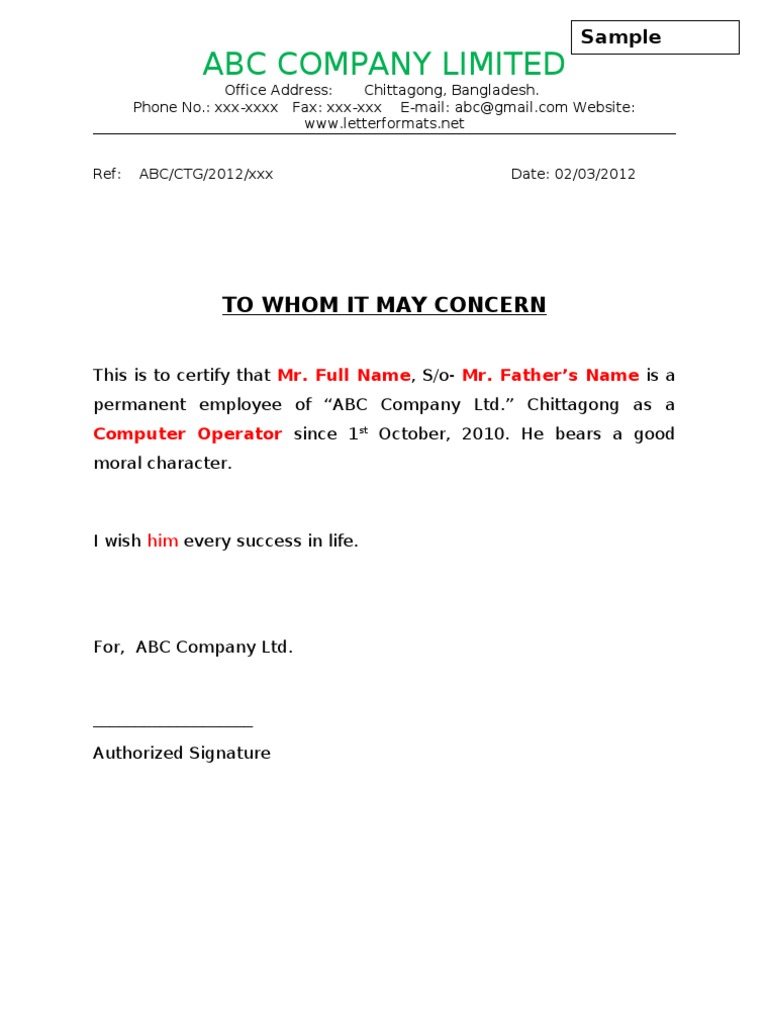
To Whom It May Concern / 50 To Whom It May Concern Letter & Email Templates ᐅ
1. Scholarship Letter Of Recommendation. This letter example accurately portrays the use of the "To Whom It May Concern" salutation. It's a formal letter of recommendation and highlights the subject in bold capital letters. Meanwhile, the salutation comes after in sentence case and a regular typeface.
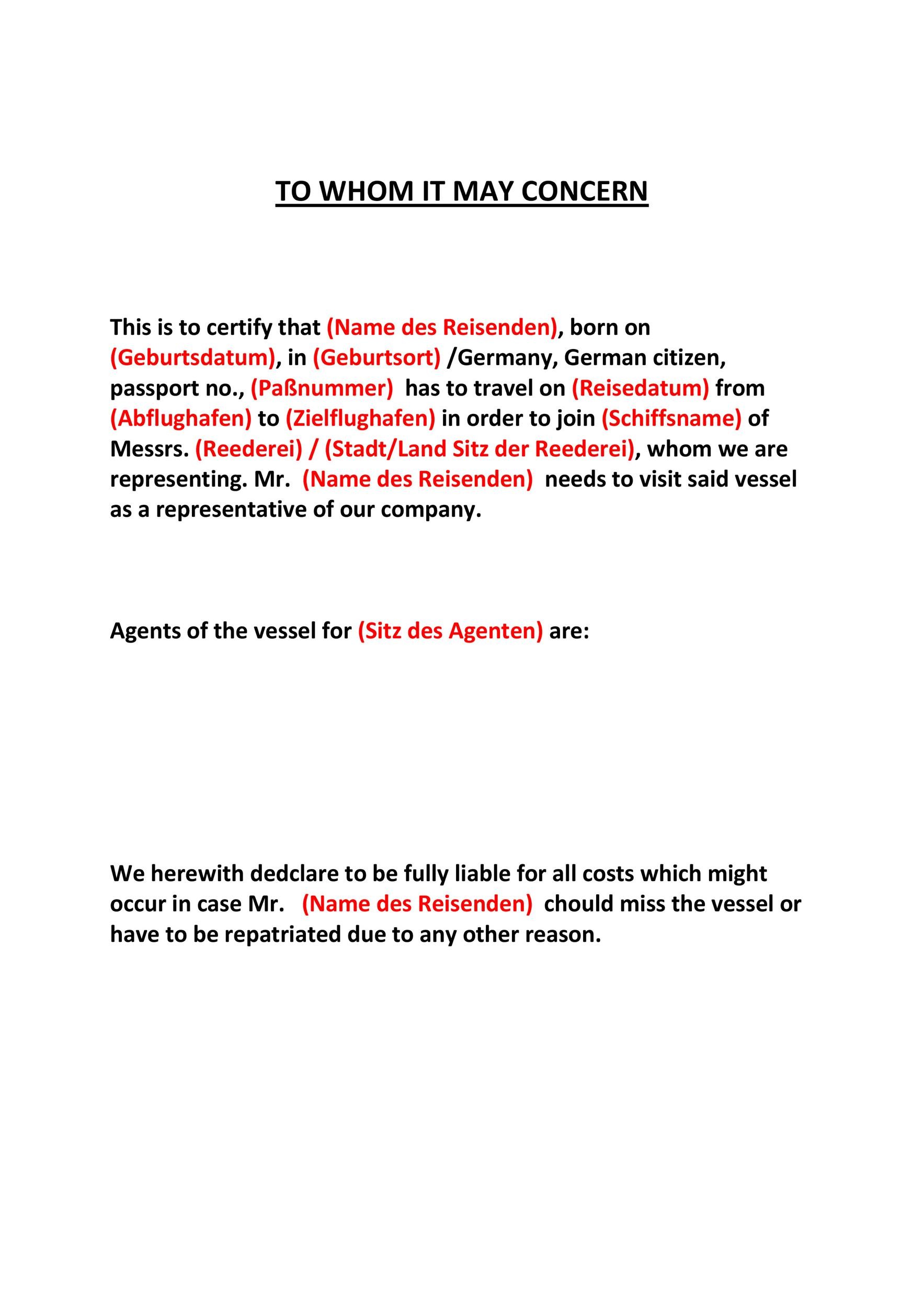
50 To Whom It May Concern Letter & Email Templates ᐅ TemplateLab
Includes the name and address of the party to whom the letter is being sent. Salutation. The grading the begins a letter, found below the inside I just separated by one or two blank lines. Date line is left justified. Block style. Instead of a of a salutation, a reference line is included in all caps.
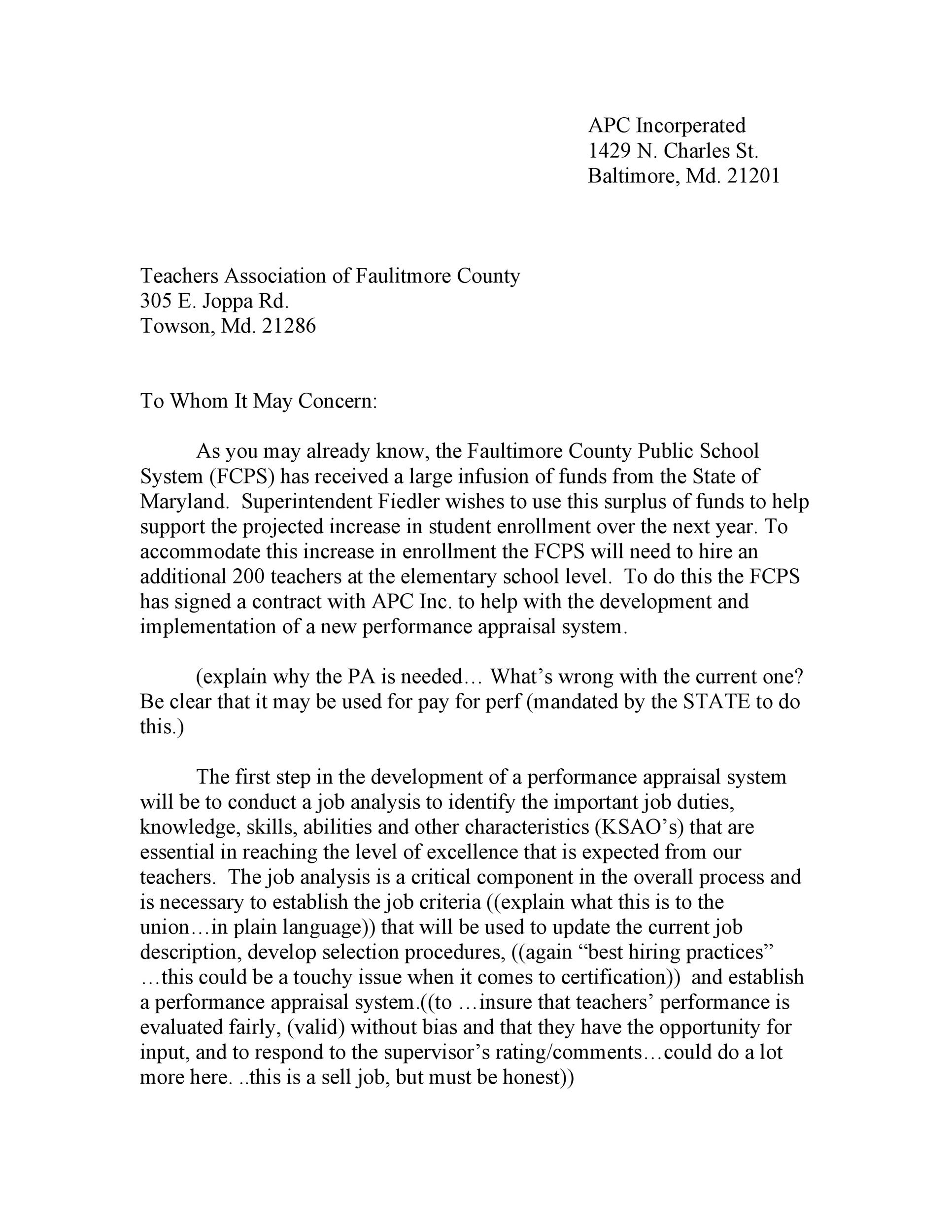
50 To Whom It May Concern Letter & Email Templates ᐅ TemplateLab
The 'North Galatia' theory maintains that the Apostle Paul wrote this letter to the Celtic group of believers in Northern Galatia, the area of modern day Turkey. The 'North Galatia' theory was the position held by the early Church fathers, and was the dominant view of scholarship until the nineteenth century. [6]

Letter Format Example To Whom It May Concern
The grammatically archaic version is "To whom did you send the email?" The currently accepted version is "Who did you send the email to". The English language has changed, ESTjarn; live with it. Perhaps the last person to insist on the "whom" version was detective inspector Morse (died 2000).